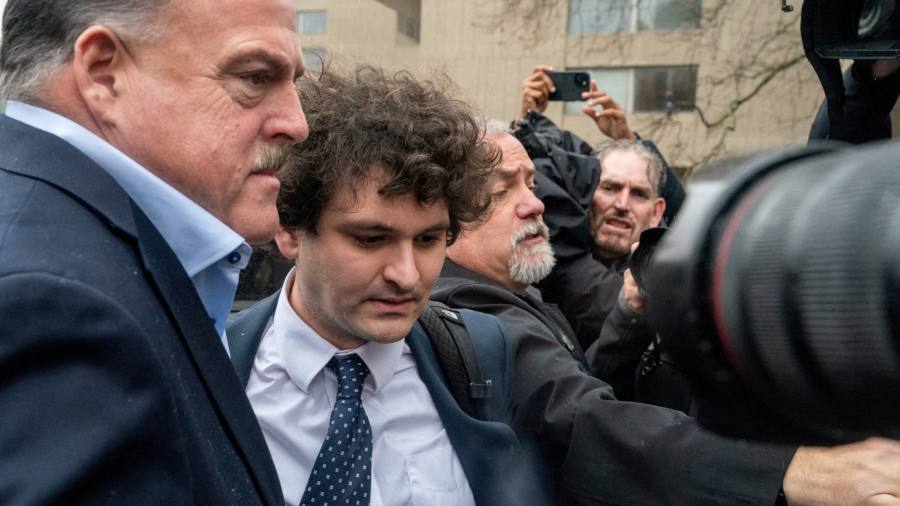US prosecutors have asked a New York judge to prevent Sam Bankman-Fried from contacting his former FTX colleagues and from using encrypted messaging apps, claiming the crypto company founder communicated with potential witnesses in his looming criminal trial.
In a letter sent to the court on Friday, the government alleged Bankman-Fried had been “in direct communication” over the Signal messaging app with the general counsel of the bankrupt cryptocurrency exchange, who might be asked to take the stand in the case against his former boss.
The letter did not name the general counsel, but the role is occupied by former Sullivan & Cromwell lawyer Ryne Miller, who joined FTX US in 2021.
Bankman-Fried has claimed Miller and Sullivan & Cromwell forced him into filing for bankruptcy, which they deny. The law firm had worked for FTX and has since been retained as its main counsel in bankruptcy.
Bankman-Fried wrote in a blog on January 12: “S&C and [Miller] were the primary parties strong-arming and threatening me into naming the candidate they themselves chose as CEO of FTX — including for a solvent entity in FTX US — who then filed for Chapter 11 and chose S&C as counsel to the debtor entities.”
The government on Friday said Bankman-Fried, who was released on bail in December after being extradited from the Bahamas to face eight criminal charges in the US, contacted the FTX general counsel on January 15 via the Signal app, as well as by email.
Prosecutors allege he wrote: “I would really love to reconnect and see if there’s a way for us to have a constructive relationship, use each other as resources when possible, or at least vet things with each other” and contacted other former and current FTX employees.
Assistant US attorney Danielle Sassoon on Friday said: “The defendant’s request to ‘vet things with each other’ is suggestive of an effort to influence Witness-1’s potential testimony, and the appeal for a ‘constructive relationship’ likewise implies that Witness-1 should align with the defendant.”
Sassoon added the government has already interviewed the general counsel of FTX, “who has first-hand knowledge of the defendant’s conduct”.
Sassoon said Bankman-Fried had been in contact with FTX’s general counsel in the lead-up to the company’s collapse in November, ordering the liquidation of investments in FTX’s trading affiliate Alameda to allow customers of the exchange to make withdrawals.
She also asked judge Lewis Kaplan to amend Bankman-Fried’s bail conditions to ban him from using encrypted or ephemeral messaging platforms including Signal. She claimed the defendant had used such apps to conceal communications from law enforcement, and set messages on Signal and Slack to disappear after 30 days while at FTX.
The government said it learned from former Alameda boss Caroline Ellison, who reached a plea agreement with prosecutors last month and is expected to testify against Bankman-Fried, that the former FTX boss had chosen to set his communications to auto delete because he understood that the information could be used in a legal case.
The auto deletion of FTX and Alameda’s Slack and Signal communications had “impeded the government’s investigation”, Sassoon said.
A lawyer for Miller declined to comment. On Saturday, lawyers for Bankman-Fried told the court that the government had attempted to portray their client “in the worst possible light”, and objected to prosecutors’ characterisation of the defendant’s communications. Judge Kaplan ordered the full interaction to be filed to the court.


























































![Mason Ramsey – Twang [Official Music Video] Mason Ramsey – Twang [Official Music Video]](https://i.ytimg.com/vi/xwe8F_AhLY0/maxresdefault.jpg)






















